#Director Jody McVeigh-Schultz on HBO’s The Murders at Starved Rock

“#Director Jody McVeigh-Schultz on HBO’s The Murders at Starved Rock”
While Weger was convicted, there have been questions about the case in the decades following his conviction, which deeply divided the nearby residents.
We had the chance to chat with director Jody McVeigh-Schultz to get insight into his process and much more.
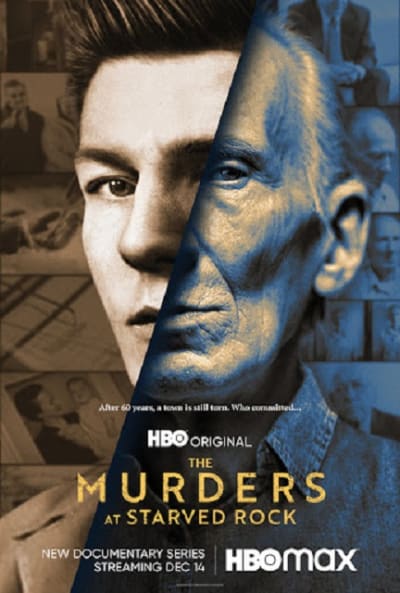
Hi, Jody. It’s nice to meet you.
Hi. Good to meet you, too.
How long have you been interested in the documentary film process?
For a long time, probably since my brother showed me Roger and Me, way back when I was a kid. Yeah. I’ve always been interested in documentaries, and I was lucky enough to get shown some really offbeat documentaries early on by people older than me.
And yeah, I mean, I went to USC film school, and I took some documentary classes there, but I didn’t know for sure that would be my career. As an editor, I’ve gotten to work on a lot of different types of projects, including scripted comedies, stuff that’s kind of in-between, like Drunk History; but I’ve always gravitated back towards documentary.

How did directing Murders at Starved Rock come about for you?
I had worked with a company called Unrealistic Ideas on the show McMillions for HBO, and I was the lead editor on that. I got to know the head of that company, a guy named Archie Gips, who was an EP on this project. We became friends and kind of understood that we liked each other’s sensibilities.
He called me up. I told him I was interested in directing. I directed a very low-budget indie film previously, but most of my experience was as an editor. He called me up and had a project, and I heard a little bit of the story and went deep down the rabbit hole.
I’m that person who is up till 4:00 AM, scouring anything I can find on the internet to research a story. It was just so clear that there were so many layers of the onion to peel back with this one. So, yeah, that was in the spring of 2020, and we developed the project and pitched it and then started our principal photography in December of 2020.
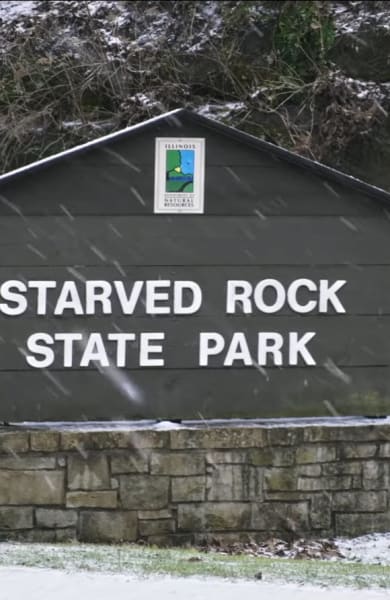
Wow. So this really came about relatively quick.
It did. What’s interesting, though, is that the archival in this, from David Raccuglia, who’s one of the main characters in the series, took several decades, essentially, of research.
David is the son of the original prosecutor in this case. In around 2003, he decided to make a documentary that remained unfinished, where he interviewed all the principal players and really set out to meet Chester, who was his boogieman as a child. He sort of got to see this entirely different side of the case that he hadn’t heard before.
Yeah, and I find Murders at Starved Rock fascinating because of that documentary-inside-of-a-documentary style. It’s like the process itself is being explored at the same time that you’re telling a unique story. How did you mesh the two? What was your goal when doing that?
It is interesting. I think we really want to show that film within a film, and right, sort of peel back the process of how people tell stories, who gets to determine what a narrative is and what the truth is. I mean, I think that’s key to this story, right?
You have a town that’s obsessed with this and very divided over what the truth is. And you have a lot of different players in this story who want to control what the prevailing narrative is, what’s the accepted truth. And I think one sort of subtext of this that we want to explore is who gets to decide what the truth is for a community, right?
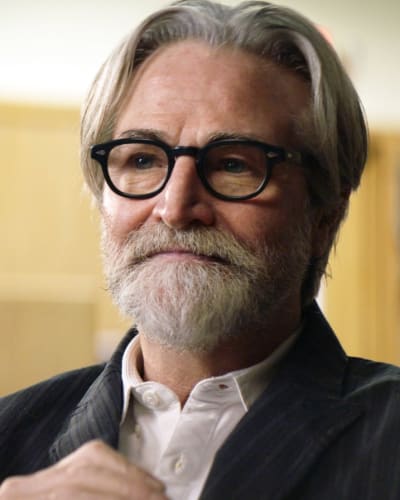
Right.
And so anyone who takes on this sort of storytelling is doing that. In some ways, David is trying to explore the real narrative and be the storyteller of that. And then, even as filmmakers, we were doing that as well. So yeah, I want the audience to be aware of that on a meta level.
And I would assume that your editing experience really worked wonders for you because of how you stepped into this and what your goal was. Can you imagine if you didn’t have that experience, how you would’ve approached this particular documentary?
Well, certainly a lot of the figuring out of the story in the writing, if you will, comes in the editing room. It’s one of the reasons I was really interested in documentaries as an editor coming up is that you really… It’s where the film is made.
There’s this sort of authorship happening in the editing room with the director and editor working together. And so that was, yeah, it was really important in this.
The story changed multiple times in the edit as we were trying to figure out the balance of how to tell this, the order in which to tell it. It was really important for us to get inside David’s head in the moments he was experiencing things because he went on a roller coaster ride.
I remember interviewing him for the first time and realizing that might be the structure, to be in his eyes, experiencing that roller coaster with the twists and turns he went through.
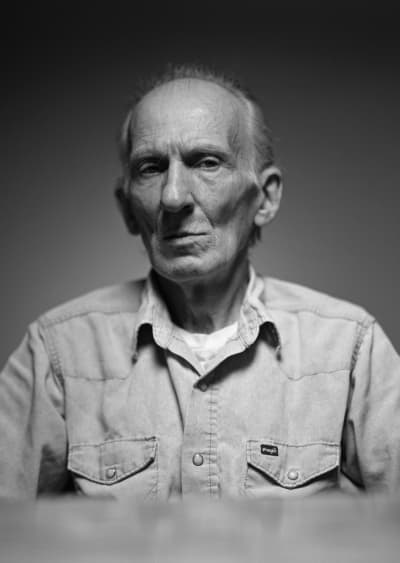
You also mentioned that part of your interest was to uncover how somebody decides what the narrative is. What was your original thesis going into this?
Well, I had worked with a director –her name’s Kelly Loudenberg — and she had worked on a series called The Confession Tapes. I worked on another series for her, but it was a similar premise about people who were wrongfully convicted.
And so I knew about false confessions, and I had sort of understood what brought them about, the telltale signs. And so, approaching this case, there are definitely red flags that point to a false confession.
There’s not much physical evidence in the case, and all of it’s really circumstantial, but in 1960, a confession meant a lot. It was a very different time in terms of public consciousness about false confessions.
And so I was very aware of that coming into it, but at the same time, you need to have this openness, that all the red flags of a false confession and possibly some police work that left some things to be desired or was perhaps irresponsible doesn’t necessarily mean that the person’s innocent. So you have to dig in past that.
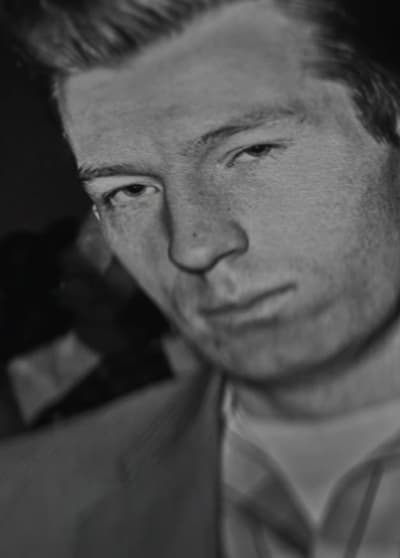
And so, for me, it was really maintaining an open mind the entire time. There were also so many stories locally from people who said, you know, I heard this thing from my mother, grandfather, whoever, that proves 100% he’s guilty or proves 100% he’s innocent.
And so you really have to tease all those things out and get to the ends of those threads in order to determine what’s true and what’s mythology, right?
Right. How much time did you spend in LaSalle?
Because of the pandemic, we were somewhat limited. I would have loved for this to be a boots-on-the-ground, knocking-on-doors kind of thing, but because of the situation, we weren’t able to do that. But it was a lot of phone calls.
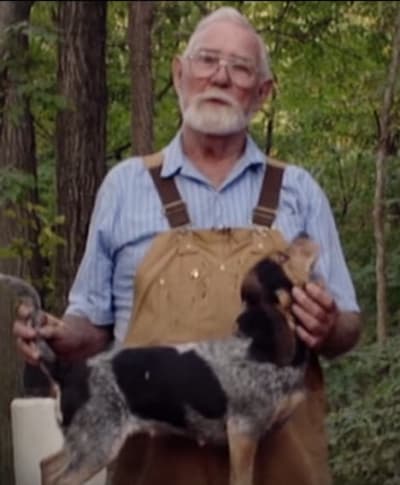
I think we were able to shoot about five weeks in LaSalle, with a little bit of that being in Chicago. And so we were able to really get a sense of the area, but also a lot of the research just had to be with phone calls in preparation for that.
As an outsider, what are your thoughts on the repercussions of those murders 60 years later?
Yeah. It is still something that affects so many people on this, and the stakes are super high. I will say, from the victims’ families, and I totally understand why, there’s a resistance to be part of something like this because it’s just an open wound, and every time this is in the news, it’s painful for their families.
We had the granddaughter of one of the victims, who was really gracious and wanted to speak to us. She talked about how there is generational trauma that continues to reverberate. Even she said that goes for Chester’s family as well. And certainly, if Chester is innocent of these crimes, then his whole life has been taken from him.
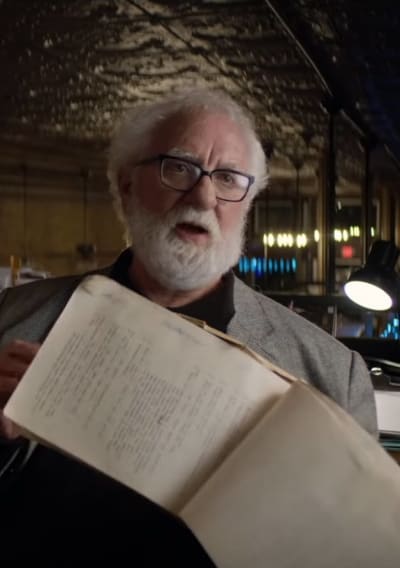
And so, the stakes are really high for everyone involved. And even for someone like David, it’s a generational story. The children of all of these players in this story are feeling the reverberated effects of it. And so, yeah, I think as an outsider, one thing I could bring to it is I had an open mind, and I had no dog in the fight.
And so I could really, genuinely say, I want to hear what everyone has to say and approach it open-mindedly, and I’ve come to no preconceptions. I tried to keep that in my head.
I’ve obviously researched a ton about this case at this point, but there are always things you don’t know, and to keep that in the side of your brain at all times, that I don’t know everything and to be open-minded to that.
From your research that you had done before you started this process and everything you’ve done afterward, how did your view on what you thought you knew change as a result of everything that you learned?
Yeah. I think viewers will have to watch, especially as you get into the third episode, to see. But I think you have this sense of one side explaining the official narrative, the case as the prosecution laid it out.
And then I heard sort of the opposite side and realized that I’m relatively sure that the official narrative is not the full truth. But in terms of guilt and innocence, certainly, things evolved as we went.
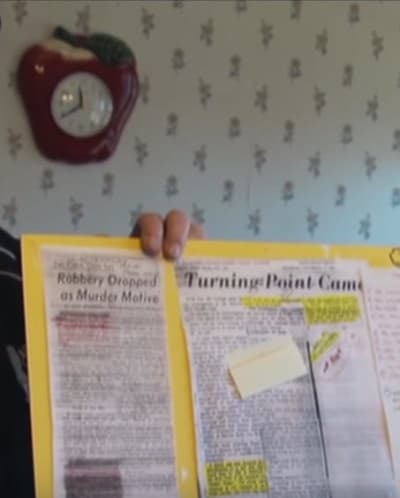
And you really have to break down when you listen to Chester speak about the crime. Well, why is he saying the things that he’s saying? And, really, there are a lot of reasons why his story might change.
The story might change because he’s now able to tell the truth for the first time. The story might change because he’s lying. His story might change because memory is a fickle thing. He spent 60 years in prison, and that takes a toll on people.
So it’s really interesting to try to parse somebody’s words in that circumstance, right?
Right.
And again, you have to be open-minded to that, but it took on a complexity. And we also, as we were researching, continued to get more material. There’s a ton of paperwork. It was a huge investigation over several months.
Through FOIA requests, we were able to get original documents that told us more. We were able to find people that were still alive that were part of the investigation.
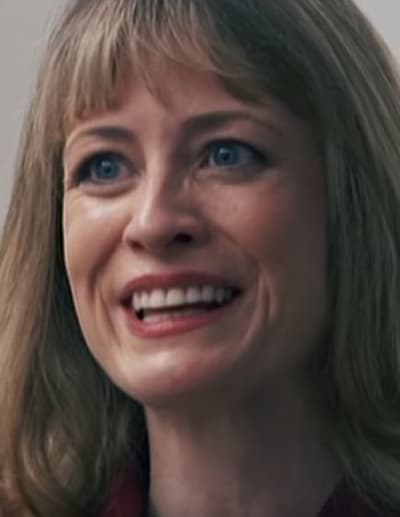
A lot of that happened in the process. And every time you get a new piece of information, your perspective can change. We had things that changed our minds or confirmed things we had had a suspicion about.
How do you hope that the completed documentary adds to the conversation around the story?
Yeah. For one thing, a lot of people know that there are lingering questions about this case. There’s a lot of incomplete information out there. And there’s a lot of unsubstantiated rumors. There’s a certain rumor that I won’t go into for fear of revealing too much, but that, really, a large percentage of these people in this town believe this is the truth of this case.
It’s an alternate suspect. We really wanted to be able to put to bed some rumors that we are sort of skeptical of, we don’t find credible. And also show why certain other possibilities are credible.
I think you have to be wary of the fact that this is going to open some wounds for people that this story is painful for and also balance that the cost of this kind of storytelling with the fact that getting everything out on the table can really help provide a little bit of closure.
I feel the same way about the DNA results, which are forthcoming, just being able to provide some closure and some answers for people who really have never gotten answers even over 60 years.
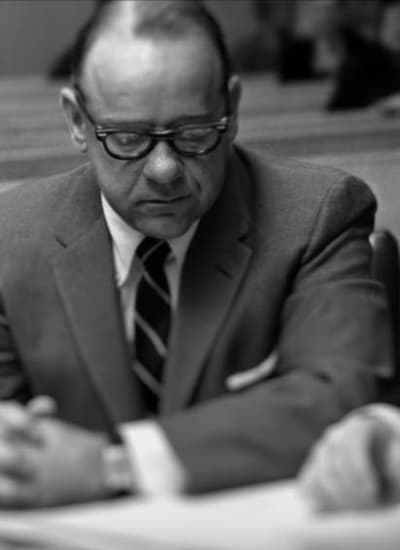
Yeah, and it’s kind of scary when after everything that you’ve done and you’ve revealed possibilities, essentially, that now it’s out there and that DNA test could just change all these people’s lives all over again.
Yes, yeah.
You know, half of them will feel one way, and the other half will feel another, and it could throw a total wrench into people who thought that it was one way, and now they have to accept whatever is revealed. It just freaks me out to think about how much these people have to look forward to just from a DNA result.
Yes. Yeah, it’s pretty huge. But you know, hopefully, now they’ll have a context of understanding what those things, what those results might mean, you know?
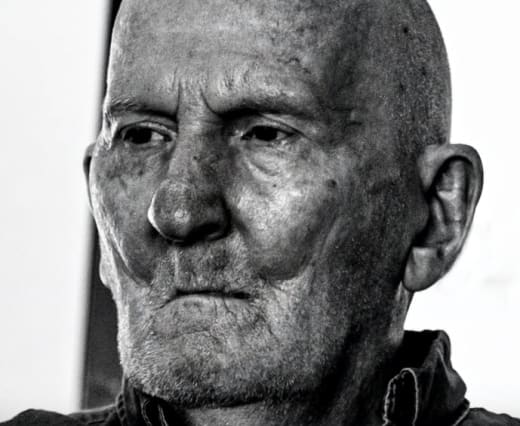
Right, yeah. Do you think you’ll do a follow-up if those results come back?
We would love to. So yeah, obviously, there’s a lot of possibilities of the DNA. You could have no clear result, or you could have something that is extremely clear in terms of what it means.
Or, more likely, you have something in between those two extremes where it means something, but you have to parse exactly what it means. So yeah, I think we would love to follow up and provide context to that.
I’d like to see that.
Thank you.
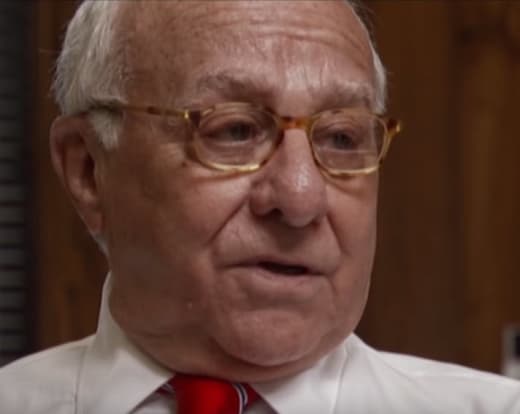
Do you have other projects already in the works? What’s coming up next for you?
I’m actually editing a project that I can’t talk about, but I’m very excited about. And yeah, developing the next thing to direct, so sort of in research mode right now.
Is it a documentary?
It’s a documentary, yeah, it’s a feature documentary.
Okay. Good. Well, I look forward to seeing it. I loved your work on McMillions.
Thank you.
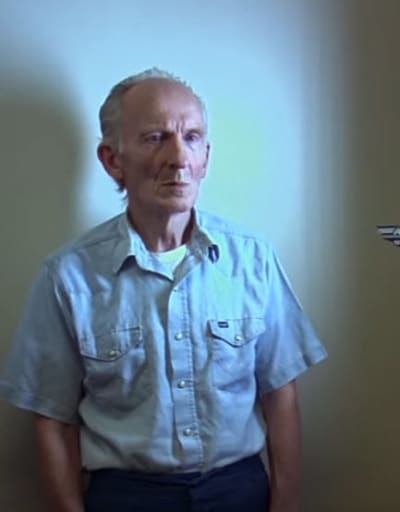
That was one of my favorite documentary series in years.
Thank you.
I loved everything about it.
It was really fun, really fun to work on. And you know, it’s interesting. This is obviously very different — The Murders at Starved Rock — in terms of tone. The stakes are different; you can’t treat them the same way.
There’s some quirkiness and some strangeness to some of the people in this, and we wanted to be respectful but show the characters and the strangeness to it all in a way that helped reveal the story, you know?
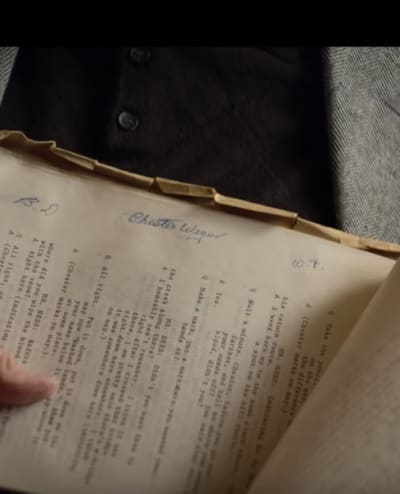
Yes, and I think that when something like this has this generational effect, there is that kind of quirkiness that crops up regardless. They didn’t mean to, but you kind of have to look at it like, “Really? Did this just happen?” That kind of thing.
Yeah, exactly.
I think you did a great job.
Thank you. I appreciate that.
I thank you so much for talking with me today, Jody.
Likewise. Appreciate it.
The Murders at Starved Rock airs tonight on HBO and today on HBO Max.
Carissa Pavlica is the managing editor and a staff writer and critic for TV Fanatic. She’s a member of the Critic’s Choice Association, enjoys mentoring writers, conversing with cats, and passionately discussing the nuances of television and film with anyone who will listen. Follow her on Twitter and email her here at TV Fanatic.
For forums sites go to Forum.BuradaBiliyorum.Com
If you want to read more Like this articles, you can visit our Social Media category.



